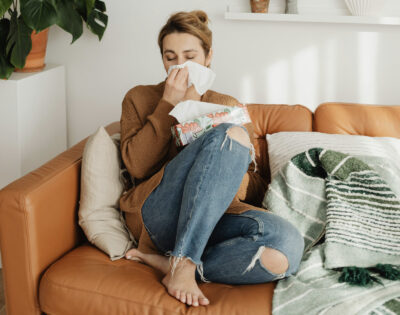 According to the Associated Press, our mild winter has resulted in an earlier than usual start to the spring allergy season. If you suffer from spring allergies, here are some tips to keep those symptoms at bay:
According to the Associated Press, our mild winter has resulted in an earlier than usual start to the spring allergy season. If you suffer from spring allergies, here are some tips to keep those symptoms at bay:
If you have a medication plan that worked for you last year, now is the time to resume it.
“If you are experiencing allergy symptoms for the first time, are unsure of the source of your allergies, or don’t have a clear idea about which medications can best help you, come see us at Lakes Urgent Care,” said medical director Dr. Haidar Al-Saadi. “We can help determine what types of allergens trigger your symptoms, establish a treatment plan, and help you monitor its effectiveness. If your Lakes Urgent Care provider feels that you could benefit from immunotherapy treatment (allergy shots), he or she will recommend a allergy specialist. Allergy shots won’t cure you of your allergies, but they will help mitigate the symptoms in the long run.”
Our sensitivities to allergens can change over time. You may have had allergies as a child and have now outgrown them and vice versa. Time magazine just published an excellent and comprehensive article that will help you better understand your allergy symptoms.
Spring Allergy Season: Treatment and Prevention Tips
Starting your treatment plan now helps prevent early inflammation and the cascade of allergic reactions that can spiral out of control.
Pollen levels will escalate as our weather warms and the plant life around us comes back to life. Here’s a website to help you track daily pollen levels in our area.
Prevention is always worth a pound of cure! If you can determine the specific allergens that trigger your symptoms, this can help you reduce or potentially eliminate exposure to the elements that cause you grief.
If tree pollen is your source of misery, it may not be possible to eliminate exposure. In your home, keep windows closed and rely on your home’s heating and cooling system along with good quality HEPA air filters and dehumidifiers to reduce symptoms while indoors or sleeping. When coming in from any outdoor activity, showering and changing your clothes can help reduce your exposure to allergens.